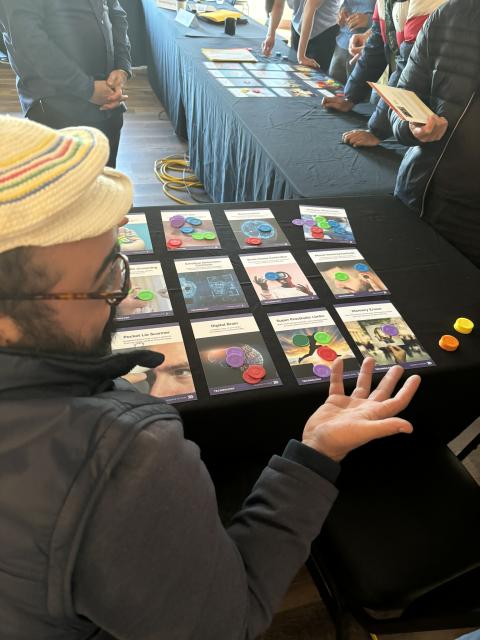
In January 2024, a group of advanced graduate students with an interest in emerging technologies gathered in Mesa, Arizona for the Eleventh Annual Winter School on Emerging Technologies. This immersive experience, run by the School for the Future of Innovation in Society at Arizona State University (ASU) with support by The National Nanotechnology Coordinated Infrastructure Coordinating Office, gives an introduction to and practical experience with methods and theory for better understanding the social dimensions of emerging technologies. The 2024 program focused on the broad notion of impact, aiming to explore ways for participants to increase and diversify the impact of their work.
During this year's event, participants used the Neuro Futures Card Game, part of a downloadable kit of hands-on activities to help encourage dialogue in public and professional audiences on the societal connection to advancing brain research and technologies. The Changing Brains kit is part of the NISE Network's larger Changing Brains project focusing on Neuroscience.
In the Neuro Futures Card game activity, participants encounter future neurotechnologies with unknown societal impacts. After using tokens to vote/prioritize technology cards based on their own thoughts and values, participants will step into the shoes of another person to reconsider their initial choices. The game fosters conversations on how technologies and society influence each other and how people’s values shape how neurotechnologies are developed and adopted. The game also includes blank technology and people cards for those who want to add their own ideas, as well as game adaptations for larger groups.
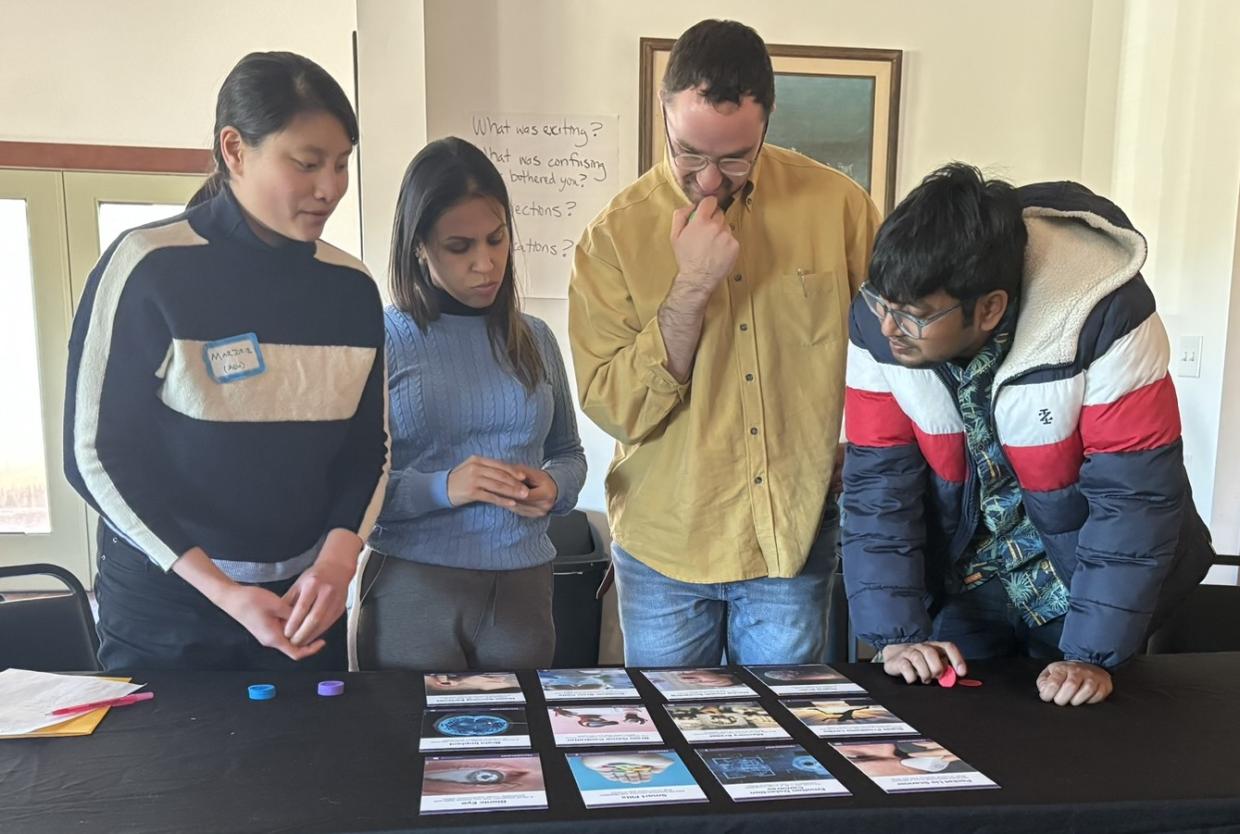
Unlike many physical kits of the past, the NISE Network specifically designed this activity and others in the Changing Brains kit to download and print on your own. The activities are mostly paper-based, with clear instructions for printing any cards or posters. Each activity also comes with a supporting guide and training video.
The Changing Brains kit activities are best suited for learners over age 10, however activities were designed for all ages and tested with families at NISE Network partner museums. They are wonderful for facilitating group conversations around difficult topics—but can also be great fun! Try using these activities during annual events such as Brain Awareness Week and World Brain Day. Incorporate card games into other regular programing around neuroscience or emerging technologies. If nothing more, print and prepare a copy to bring out at your next game night for some thought provoking fun with friends!
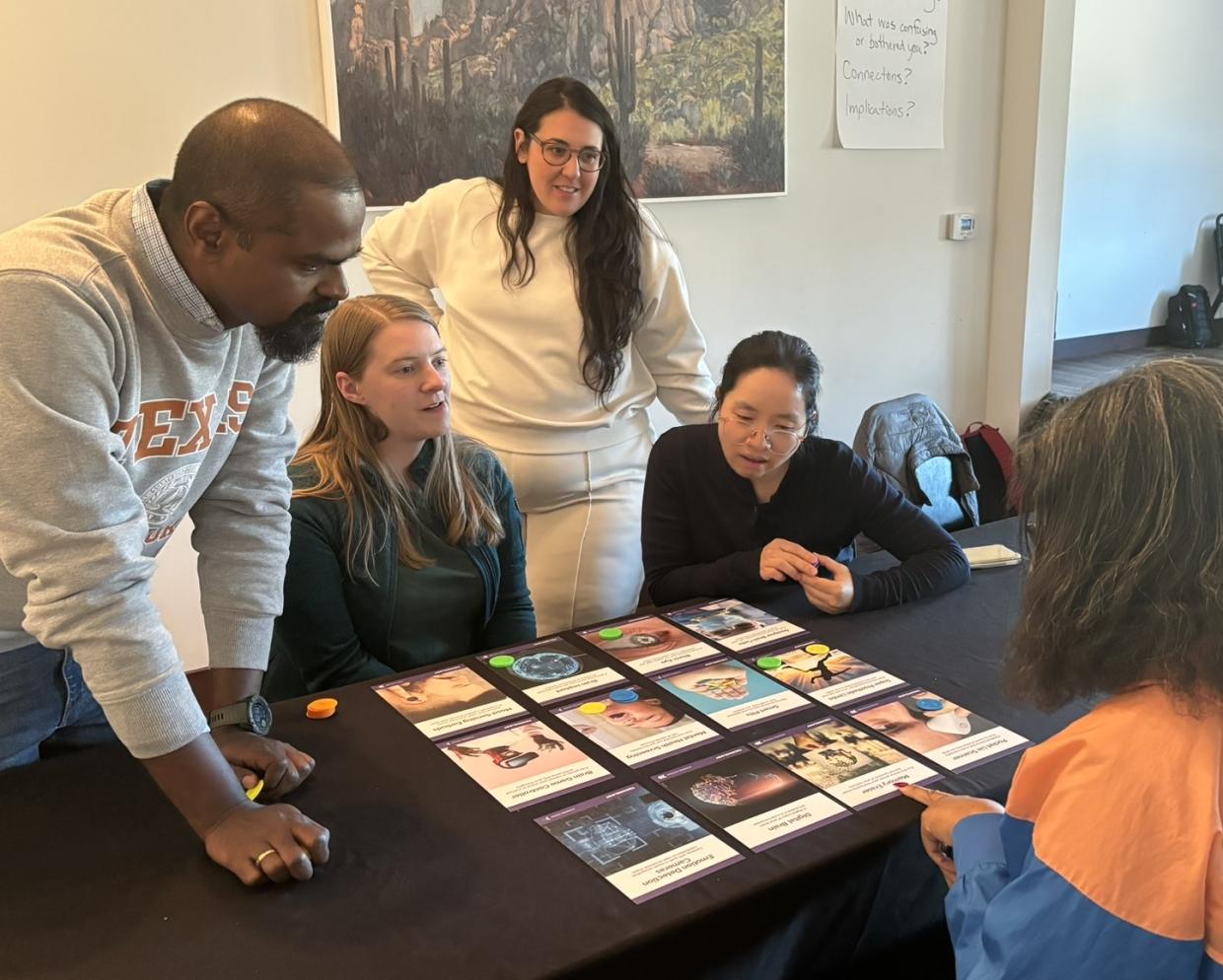
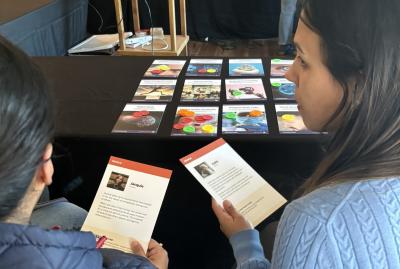
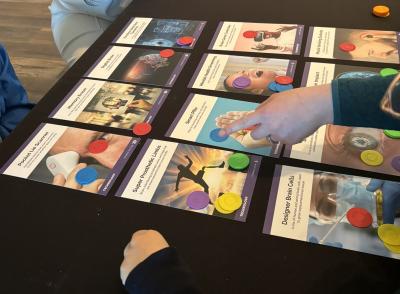
Acknowledgements
Developed for the NISE Network with funding from the Dana Foundation.
The Barbara Gill Civic Science Fellowship program is supported by the Dana Foundation.
The Global Landscape of Neuroscience Public Engagement Efforts and the Potential Nexus of Neuroethics, the Public Engagement with Neuroscience and Society Conference, and resulting training activities were based on work supported by The Kavli Foundation. Any opinions, findings, and conclusions or recommendations expressed in this program are those of the authors and do not necessarily reflect the views of the Foundation.
